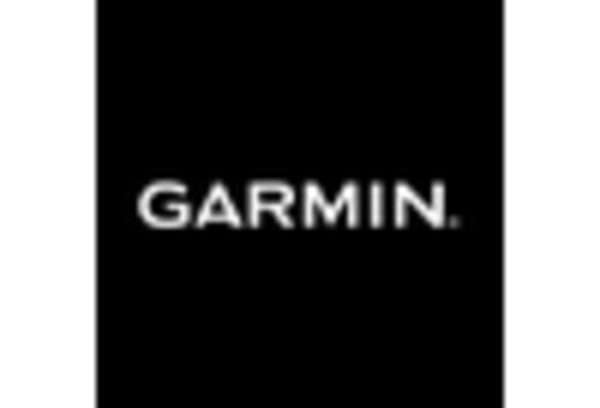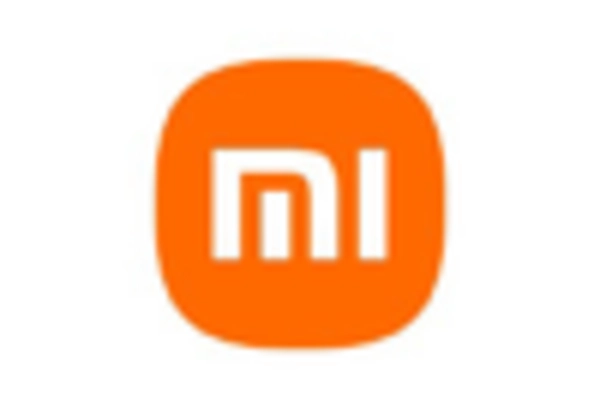Technological Advancements
Technological innovations play a crucial role in shaping the fitness tracker market. The integration of advanced sensors, improved battery life, and enhanced connectivity options has made fitness trackers more appealing to consumers. For instance, the introduction of GPS tracking and heart rate monitoring has become standard in many devices, allowing users to gain deeper insights into their fitness activities. The fitness tracker market is witnessing a compound annual growth rate (CAGR) of around 15% as a result of these advancements. As technology continues to evolve, it is expected that new features will emerge, further driving consumer interest and expanding the market.
Rising Health Consciousness
The fitness tracker market is experiencing a surge in demand driven by an increasing awareness of health and wellness among consumers. As individuals become more conscious of their physical fitness and overall well-being, the adoption of fitness trackers has risen significantly. According to recent data, approximately 60% of adults in the US actively seek to monitor their health metrics, such as heart rate and activity levels. This trend is likely to continue, as more consumers recognize the importance of maintaining a healthy lifestyle. The fitness tracker market is thus positioned to benefit from this heightened focus on personal health, with manufacturers responding by developing advanced features that cater to health-conscious consumers.
Focus on Preventive Healthcare
The fitness tracker market is increasingly influenced by a societal shift towards preventive healthcare. As healthcare costs continue to rise, consumers are seeking ways to proactively manage their health. Fitness trackers provide users with valuable data that can help them make informed lifestyle choices, potentially reducing the risk of chronic diseases. This trend is reflected in the growing number of partnerships between fitness tracker manufacturers and healthcare providers, aimed at promoting wellness and preventive care. The fitness tracker market stands to gain from this focus on preventive healthcare, as more individuals recognize the value of tracking their health metrics to enhance their quality of life.
Increased Adoption Among Older Adults
The fitness tracker market is seeing a notable increase in adoption rates among older adults, a demographic that is becoming increasingly tech-savvy. Many older individuals are utilizing fitness trackers to monitor their health metrics, manage chronic conditions, and maintain an active lifestyle. Recent surveys indicate that nearly 40% of seniors in the US have expressed interest in using wearable technology for health monitoring. This trend suggests that the fitness tracker market has the potential to tap into a growing segment of the population that values health management and preventive care, thereby expanding its consumer base.
Growing E-commerce and Retail Availability
The fitness tracker market is benefiting from the expansion of e-commerce platforms and retail availability. With the rise of online shopping, consumers have greater access to a variety of fitness trackers, often at competitive prices. This accessibility is crucial, as it allows consumers to compare features and prices easily, leading to informed purchasing decisions. Data indicates that online sales of fitness trackers have increased by over 30% in the past year alone. The fitness tracker market is likely to continue thriving as more retailers embrace online sales channels, making these devices more accessible to a broader audience.















